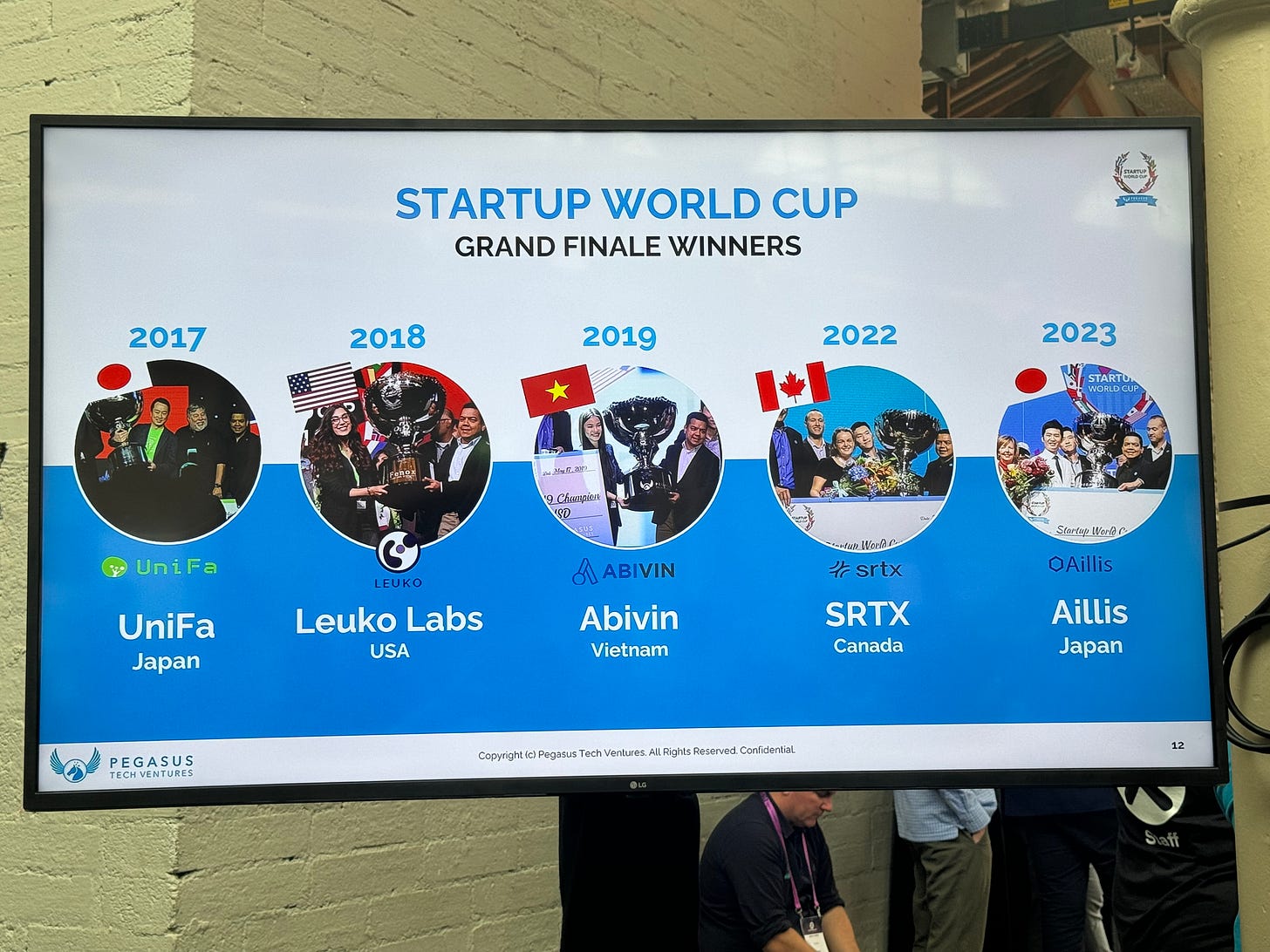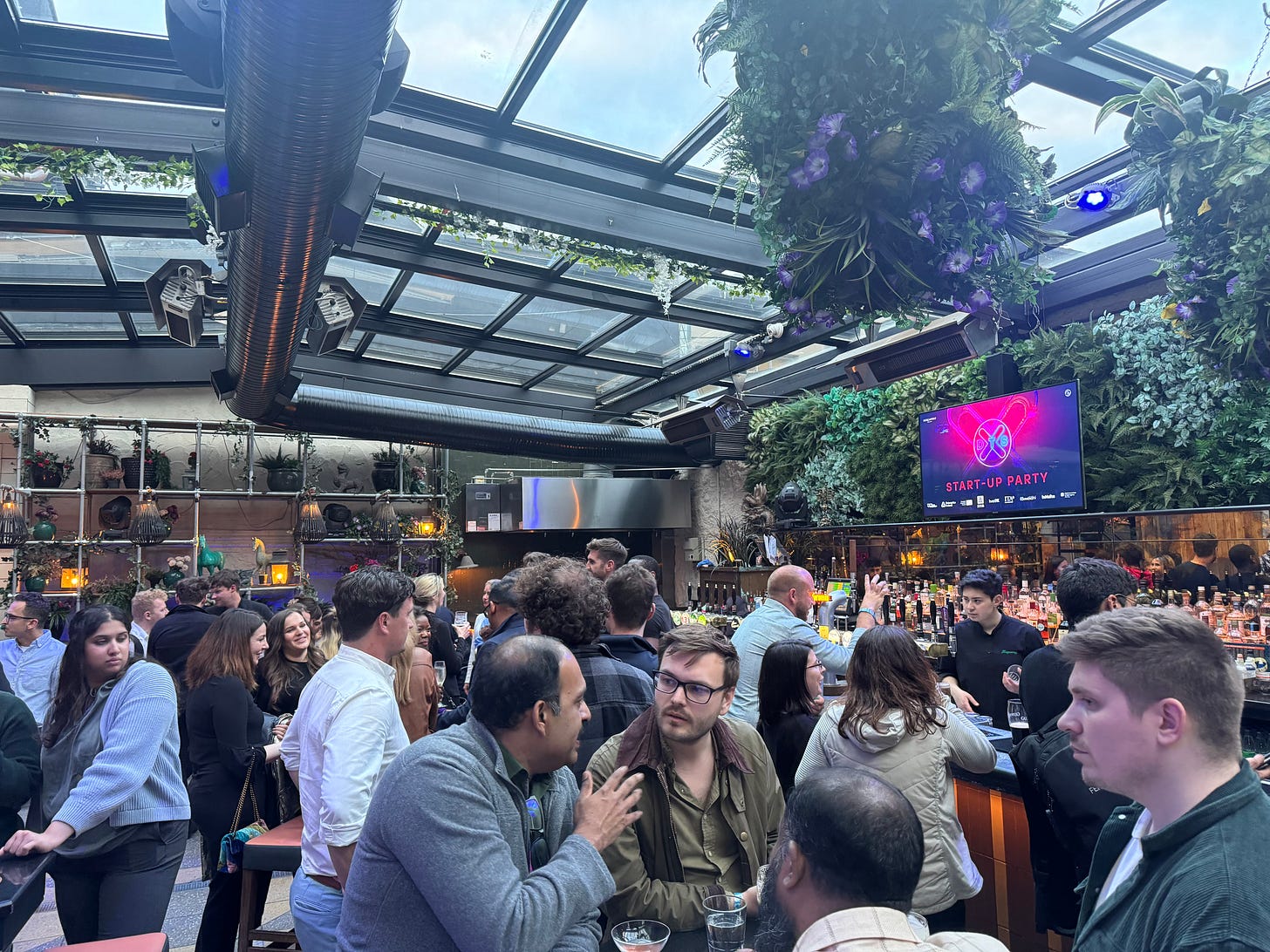Dublin Tech Summit
Those familiar with my work know I enjoy attending tech and startup conferences. Recently, I took a closer look at the Dublin Tech Summit.
This is MadeMeThink – A Weekly Publication with Curated Content for Visionaries, Innovators & Critical Thinkers Exploring the World of Tomorrow. Written by Prof. Thomas Metzler, Ph.D.
This MadeMeThink…
Dublin Tech Summit
Regular readers know that I like to go to a tech/startup conference (see here). Last week, I took a closer look at the Dublin Tech Summit.
If you've been around the tech world for a long time, you may remember that the WebSummit started in Dublin and then moved to Lisbon. The WebSummit used to be in the same location where the Tech Summit is now (=RDS), but over time it just got too big (70,000 visitors, 2,600 startups, 800 speakers 👀). The RDS in Dublin is - in the world of huge conferences - a medium-sized venue that hosts around 8,000 visitors, 200 speakers and 150 start-ups at the Dublin Tech Summit. However, the RDS venue might already be too small for the Tech Summit, which is perhaps why the main stage was set up in an unheated outdoor tent, in which it was quite chilly at times 🥶 Although there were attendees from 60 different countries, the Tech Summit is predominantly attended by local visitors.
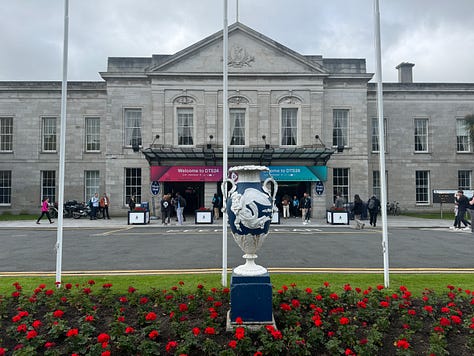
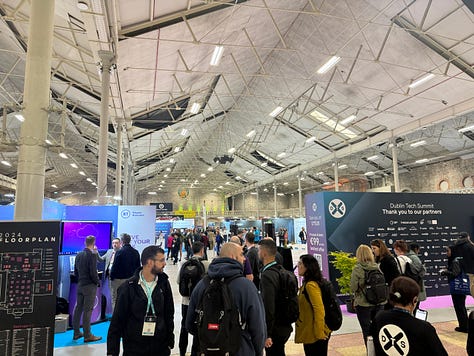






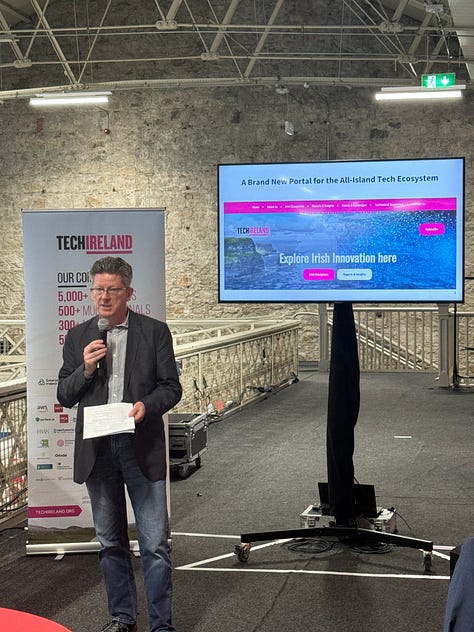
In terms of content, the Tech Summit could also have been called the AI Summit, as almost all presentations and panels centred on AI. But it was a good fit for me, as I also deal intensively with the topic. During the days on one of the stages, the moderator stated:
"AI is the Oppenheimer moment of our generation”
This statement MadeMeThink. Is it truly accurate? The reference to J. Robert Oppenheimer, the father of the atomic bomb, refers to the profound and potentially dangerous effects of a transformative technology. Just as the atomic bomb changed the course of history, artificial intelligence holds the power to revolutionize our world in ways we are only beginning to understand. It raises questions about the ethical implications, the responsibilities of those who develop such technology, and the long-term effects on society. Are we prepared to handle the consequences of AI, both positive and negative, as we continue to push the boundaries of innovation? That is certainly a question that I have not been able to answer fully. But the current open letter from current and former employees of pioneering AI companies certainly makes me doubt this.
“AI companies have strong financial incentives to avoid effective oversight (…) they currently have only weak obligations to share some of this information with governments, and none with civil society (…) current and former employees are among the few people who can hold them accountable to the public. Yet broad confidentiality agreements block us from voicing our concerns.” - Excerpt from the open letter.
This open letter, signed by 4 current and 7 former OpenAI employees, definitely made me think. But alongside these big and concerning questions about AI, the Dublin Tech Summit also showcased some “feel-good” AI applications such as “Kiki”. Kiki is a virtual human avatar that uses AI to provide sign language interpretation (see video below). Kiki is used in Japan for real-time earthquake and disaster warnings. The system automatically generates sign language animations based on data from the Japan Meteorological Agency and delivers important information within minutes, around the clock, ensuring that important warnings are accessible to the deaf and hearing-impaired at all times.
Latest since the memorial service for Nelson Mandela (see video below), we know how challenging it can be to find a reliable sign language translator. In emergencies, like earthquakes, the immediate need for someone fluent in sign language becomes nearly impossible to meet. This is where AI shines, providing a beautiful and beneficial application by ensuring real-time sign language interpretation when it's needed most.
Okay, what else. In one of the panel discussions at TechSummit, I heard the term ‘Vanilla AI’ for the first time, which made me smile (and then think). It describes companies that implement only basic AI features to appear innovative without fully integrating the technology. Essentially, they use minimal, plugin AI components just for show. I think I'll adopt the term "Vanilla AI." And I do indeed often see that new technologies are only used superficially to give the impression that an organisation is innovative.
The Irish qualifiers for the Startup World Cup Final also took place during the Dublin Tech Summit. The Startup Worldcup seems to be a big deal. Pegasus Tech Ventures organises it every year. For the finalists, the final involves pitches in front of a relevant audience in Silicon Valley and a million in funding for the winner. On the following slide you can see the winners of the last years.
The winner of the Irish qualifier for the grand final in Silicon Valley was - no surprise - an AI startup: Inspeq.ai, a tool that improves LLM performance by 90% and reduces hallucination by 80% (and this is particularly important in business chat applications).
At every big tech event, there are usually a bunch of side events. The side events are often almost as important as the main event, as they usually enable an exchange within a specific community. At the Tech Summit in Dublin, there were surprisingly few side events (or they took place without me realising it). However, I did attend some side events.
TechIreland hosted an excellent networking event for founders at the Dublin Tech Summit. Thanks to an introduction from Josef Treml of Advantage Austria to Sree from TechIreland, I was able to attend and engage in meaningful conversations with Irish founders. During the event, TechIreland announced a cooperation with Dealroom, which will provide a dedicated Irish Ecosystem Space on their platform. More on this in my next newsletter, where I'll be covering the Irish startup and innovation ecosystem.
I also went to a startup side event, which was also quite nice (see picture below).
I wondered whether there might be fewer side events at the Dublin Tech Summit because Dublin itself seems like a side event. The city's nightlife, especially in areas like Temple Bar, is vibrant with live music, crowds, and a great atmosphere every night. I explored a few selected spots and was amazed by the lively scene.
One evening I visited a church. Plot twist: the church turned out to be a bar 😅🤷♂️ So, I enjoyed a Guinness and watched some traditional dancing.

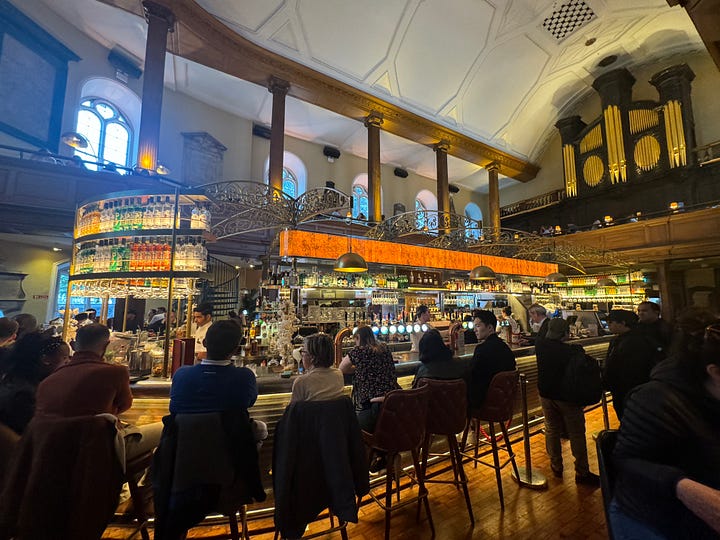
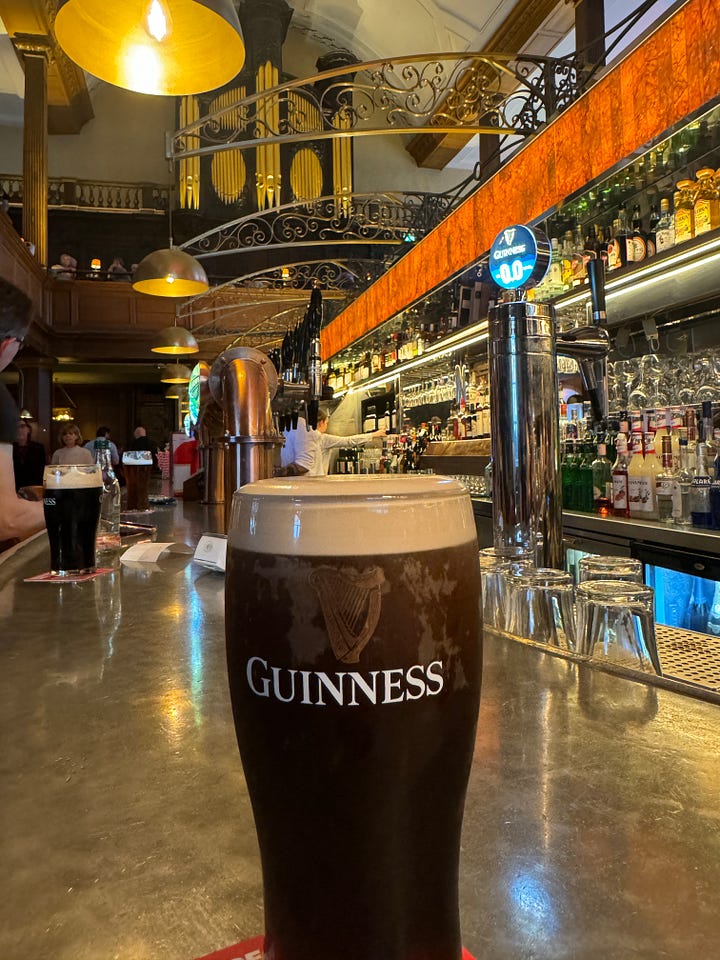

Another day, I went to the bank, which also turned out to be a bar 😅🙈 I ended up having an Irish coffee, that certainly woke me up 👀🤯



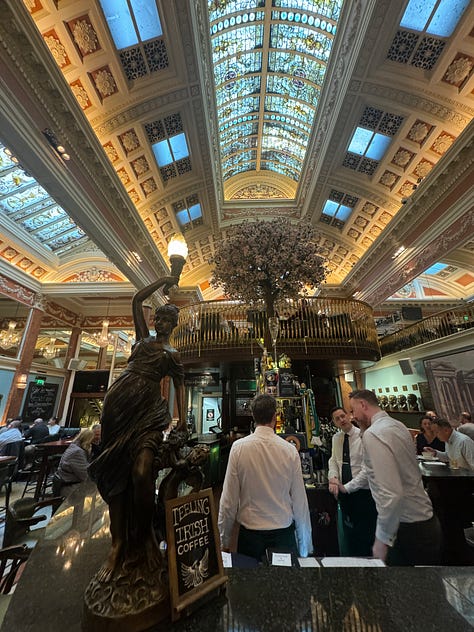


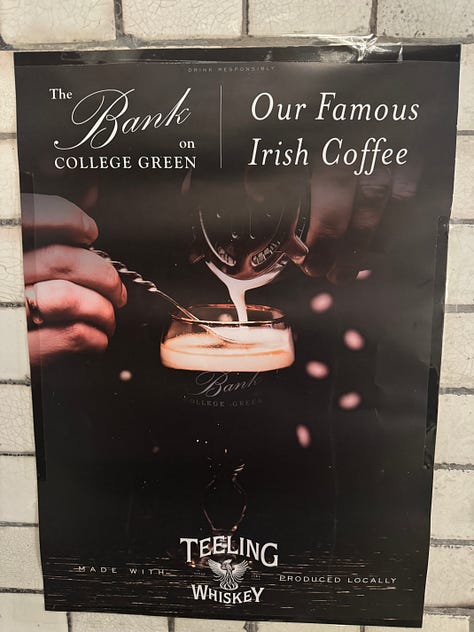


And even at the airport, not normally a relaxed place, there was a cosy bar, even outside.
I got the feeling that the Irish really like to have a drink, but thats another story 😅Last but not least: When browsing through the stores at the airport, e.g. I found this “Worry Stone.” The stone itself didn’t interest me much, but the phrase “Why Worry?” on the packaging made me think (and smile).
Okay, that's it for this week. Next week we'll continue with a look at the Irish startup and innovation ecosystem. Stay tuned…
Book me as your keynote speaker: If you found this article insightful and you’re looking for an engaging keynote speaker to elevate your next event, I invite you to discover more about my keynote topics and speaking engagements. If you have any questions, feel free to contact me.
Sharing is caring! If you've enjoyed this read, please spread the word to a friend. Your support is invaluable! Referrals = more readers = more time for me to write articles = better quality of the insights you receive (+ good karma). And I'm sure your friend will appreciate your recommendation too. I certainly appreciate it very much!
Disclaimer: The thoughts published in this publication are my personal opinion and should not be considered as investment advice or a recommendation for any type of action. I am not a financial expert. The startups, organizations or corporates highlighted in this publication have caught my interest. This mention is not an endorsement or recommendation to engage with them. Readers should always do their own research.


